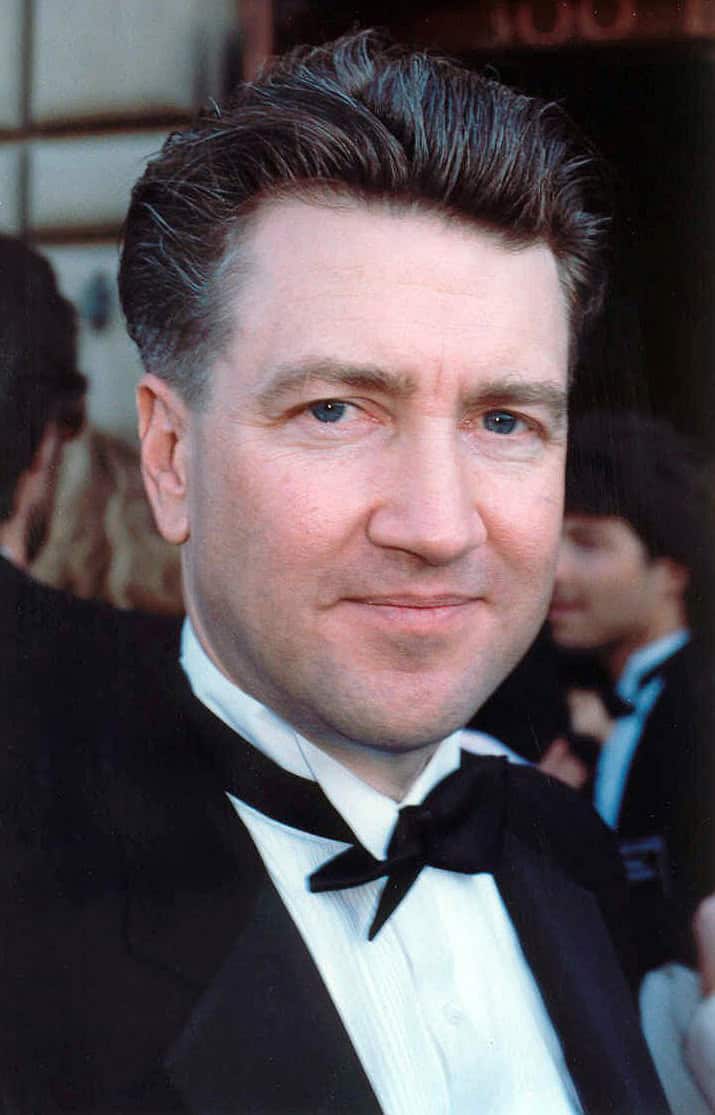photo by Alan Light, CC BY 2.0 https://creativecommons.org/licenses/by/2.0, via Wikimedia Commons
David Lynch, the visionary filmmaker and artist, has died at the age of 78. His passing marks the end of a remarkable career that reshaped cinema and television with surreal, thought-provoking works. Lynch’s death was announced by his family on January 16, 2025.
Lynch’s unique style captivated audiences worldwide. He created iconic films like “Blue Velvet” and “Mulholland Drive,” as well as the groundbreaking television series “Twin Peaks.” His work often blended dreams, reality, and the subconscious, challenging viewers’ perceptions and leaving a lasting impact on popular culture.
The film industry mourns the loss of this extraordinary talent. Lynch’s influence extended beyond cinema, encompassing music, painting, and digital media. His creative vision inspired countless artists across various disciplines, cementing his place as a cultural icon.
Remembering David Lynch: A Pioneer of Surrealist Cinema
David Lynch, the visionary filmmaker known for his surreal and often unsettling cinematic creations, has passed away at the age of 78. His unique style, blending dreamlike imagery with dark, psychological themes, has left an enduring mark on the world of film.
Early Life and Career
Born in Missoula, Montana, in 1946, Lynch’s early life was marked by frequent moves across the country due to his father’s job as a research scientist for the U.S. Department of Agriculture. This constant change of scenery may have contributed to the sense of disorientation and unease that often permeates his films.
Lynch’s artistic journey began with painting and sculpture before he transitioned to filmmaking in the late 1960s. His early short films, such as “The Alphabet” (1968) and “The Grandmother” (1970), showcased his penchant for the bizarre and the macabre.
A Breakthrough with Eraserhead
In 1977, Lynch released his first feature film, “Eraserhead,” a nightmarish and surreal exploration of fatherhood and industrial decay. Shot in black and white, the film’s disturbing imagery and unsettling sound design made it an instant cult classic.
Mainstream Success and Critical Acclaim
Lynch’s breakthrough into the mainstream came with the 1980 film “The Elephant Man,” a biographical drama about Joseph Merrick, a severely deformed man living in Victorian England. The film garnered eight Academy Award nominations, including Best Director and Best Adapted Screenplay.
Throughout the 1980s and 1990s, Lynch continued to push the boundaries of conventional filmmaking with films like “Blue Velvet” (1986), a neo-noir thriller exploring the dark underbelly of suburban America, and “Mulholland Drive” (2001), a psychological thriller set in Hollywood that has been hailed as one of the greatest films of the 21st century.
Twin Peaks: A Television Phenomenon
In 1990, Lynch co-created the television series “Twin Peaks” with Mark Frost. The show, a murder mystery set in a quirky small town, captivated audiences with its blend of surrealism, soap opera melodrama, and horror. Though short-lived, “Twin Peaks” became a cultural phenomenon and has since gained a devoted following.
A Lasting Legacy
David Lynch’s impact on cinema is undeniable. His films have challenged and inspired generations of filmmakers, and his unique vision has expanded the possibilities of what film can be. His work continues to be analyzed, debated, and celebrated, ensuring that his legacy will endure for years to come.
David Lynch’s Filmography
| Year | Film |
|---|---|
| 1977 | Eraserhead |
| 1980 | The Elephant Man |
| 1984 | Dune |
| 1986 | Blue Velvet |
| 1990 | Wild at Heart |
| 1992 | Twin Peaks: Fire Walk with Me |
| 1997 | Lost Highway |
| 1999 | The Straight Story |
| 2001 | Mulholland Drive |
| 2006 | Inland Empire |
Key Takeaways
- David Lynch died at 78, leaving behind a legacy of surreal and influential films.
- His work in cinema and television reshaped storytelling conventions.
- Lynch’s artistic influence extended to music, painting, and digital media.
Life and Career
David Lynch’s journey in filmmaking and art spanned decades, leaving an indelible mark on cinema and popular culture. His unique vision and unconventional storytelling style captivated audiences worldwide.
Early Years
David Keith Lynch was born on January 20, 1946, in Missoula, Montana. He spent his childhood moving around due to his father’s job with the U.S. Department of Agriculture. Lynch developed an early interest in art, which led him to study painting at the Pennsylvania Academy of the Fine Arts in Philadelphia.
His transition to filmmaking began with experimental short films. These early works showcased his distinctive visual style and fascination with the surreal.
Major Works
Lynch’s breakthrough came with his first feature film, “Eraserhead” (1977). This surrealist horror film established his reputation as a unique voice in cinema.
His subsequent works included:
- “The Elephant Man” (1980)
- “Blue Velvet” (1986)
- “Wild at Heart” (1990)
- “Twin Peaks” (TV series, 1990-1991, 2017)
- “Lost Highway” (1997)
- “Mulholland Drive” (2001)
- “Inland Empire” (2006)
“Twin Peaks” became a cultural phenomenon, blending mystery, horror, and surrealism in a groundbreaking television format.
Themes and Style
Lynch’s films often explored dark undercurrents beneath seemingly normal facades. His work was characterized by:
- Surrealist imagery
- Non-linear narratives
- Psychological horror elements
- Dream-like sequences
- Exploration of the subconscious
The term “Lynchian” emerged to describe his unique aesthetic and thematic approach. His films often blurred the line between reality and dreams, challenging viewers’ perceptions.
Personal Endeavors
Beyond filmmaking, Lynch pursued various artistic interests. He was an accomplished painter and musician, releasing several albums of experimental music.
Lynch was a vocal advocate for Transcendental Meditation, practicing it daily and promoting its benefits through his David Lynch Foundation.
In 2018, he co-authored the memoir “Room to Dream,” offering insights into his creative process and personal life.
Tributes and Influence
David Lynch’s passing sparked an outpouring of admiration from fellow filmmakers, actors, and fans worldwide. His unique vision and artistic contributions left an indelible mark on cinema and popular culture.
Awards and Recognition
Lynch’s career was marked by numerous accolades. He received four Academy Award nominations for Best Director, recognizing his work on “The Elephant Man,” “Blue Velvet,” and “Mulholland Drive.” The Cannes Film Festival honored him with the Palme d’Or for “Wild at Heart” in 1990.
In 2019, Lynch was awarded an honorary Oscar for lifetime achievement. This recognized his significant contributions to American cinema over five decades.
The filmmaker’s work often defied categorization, blending surrealism with noir elements. This unique approach earned him critical acclaim and a devoted fanbase.
Cultural Impact
Lynch’s influence extended far beyond traditional filmmaking. “Twin Peaks” became a cult classic, reshaping television storytelling in the 1990s. The show’s revival in 2017, “Twin Peaks: The Return,” further cemented its iconic status.
His collaborations with actors like Kyle MacLachlan, Laura Dern, and Naomi Watts produced memorable performances. These partnerships often spanned multiple projects, creating a distinctive “Lynchian” ensemble.
Lynch’s surreal style influenced music videos, fashion, and visual arts. His work inspired countless filmmakers to experiment with narrative structure and visual storytelling.
Continued Legacy
David Lynch’s impact continues beyond his passing. His YouTube channel and official Facebook page remain active, sharing his artistic vision with new generations.
Recent films like Steven Spielberg’s “The Fabelmans” have paid homage to Lynch’s influence on American cinema. This acknowledgment highlights his enduring legacy in the film industry.
Lynch’s work continues to be studied in film schools worldwide. His unique approach to storytelling and visual composition remains a subject of academic interest and artistic inspiration.
Many of Lynch’s films, once considered controversial, are now celebrated as groundbreaking works of art. This shift in perception underscores the lasting impact of his creative vision.
Frequently Asked Questions
David Lynch’s career spanned decades, leaving an indelible mark on cinema and television. His unique style and influential works garnered critical acclaim and numerous awards.
What were David Lynch’s most influential works in cinema?
Lynch’s surreal and frequently confounding films became iconic in the world of cinema. “Blue Velvet” (1986) shocked audiences with its dark portrayal of small-town America.
“Mulholland Drive” (2001) is widely regarded as one of the greatest films of the 21st century. Its nonlinear narrative and dreamlike quality exemplify Lynch’s signature style.
“Eraserhead” (1977), Lynch’s first feature film, established him as a unique voice in experimental cinema.
How did David Lynch contribute to the realm of TV and film?
Lynch revolutionized television with “Twin Peaks”, a surreal mystery series that aired in 1990-1991. The show blended genres and pushed the boundaries of conventional storytelling on TV.
He continued to innovate with “Twin Peaks: The Return” in 2017, further expanding the show’s mythology and experimenting with form.
Lynch’s films often blurred the line between reality and dreams, challenging viewers’ perceptions.
What is the impact of David Lynch’s death on the film industry?
Lynch’s passing marks the end of an era in avant-garde filmmaking. His unique vision inspired countless filmmakers and artists.
The industry loses a pioneer who consistently pushed creative boundaries and refused to conform to mainstream expectations.
Lynch’s death creates a void in surrealist cinema that will be difficult to fill.
Can you recount notable collaborations in David Lynch’s career?
Lynch frequently collaborated with composer Angelo Badalamenti, whose haunting scores became integral to the Lynchian atmosphere.
Actor Kyle MacLachlan appeared in several of Lynch’s projects, most notably as Agent Dale Cooper in “Twin Peaks.”
Lynch’s partnership with producer Mary Sweeney resulted in critically acclaimed films like “The Straight Story” and “Mulholland Drive.”
Which awards and recognitions did David Lynch receive during his lifetime?
Lynch received three Academy Award nominations for Best Director: “The Elephant Man” (1980), “Blue Velvet” (1986), and “Mulholland Drive” (2001).
He won the Palme d’Or at the Cannes Film Festival for “Wild at Heart” in 1990.
Lynch received a lifetime achievement award from the Venice Film Festival in 2006 for his contributions to cinema.
How did David Lynch’s style evolve over his career?
Lynch’s early work, like “Eraserhead,” showcased his surrealist tendencies and industrial soundscapes.
In the 1980s, he explored more mainstream narratives with “The Elephant Man” and “Dune,” while maintaining his unique visual style.
Later films like “Lost Highway” and “Inland Empire” saw Lynch embrace digital filmmaking and increasingly abstract storytelling techniques.






